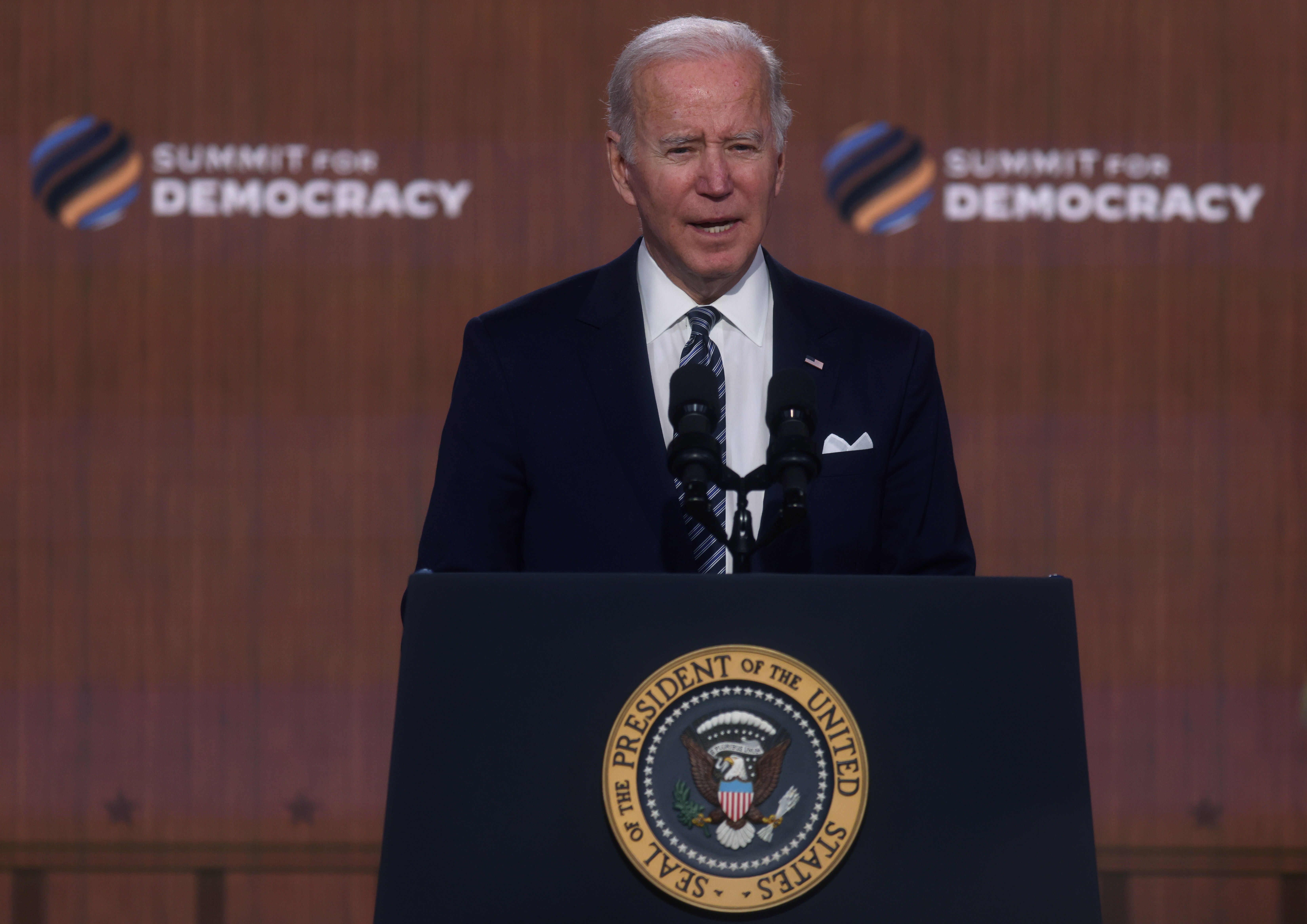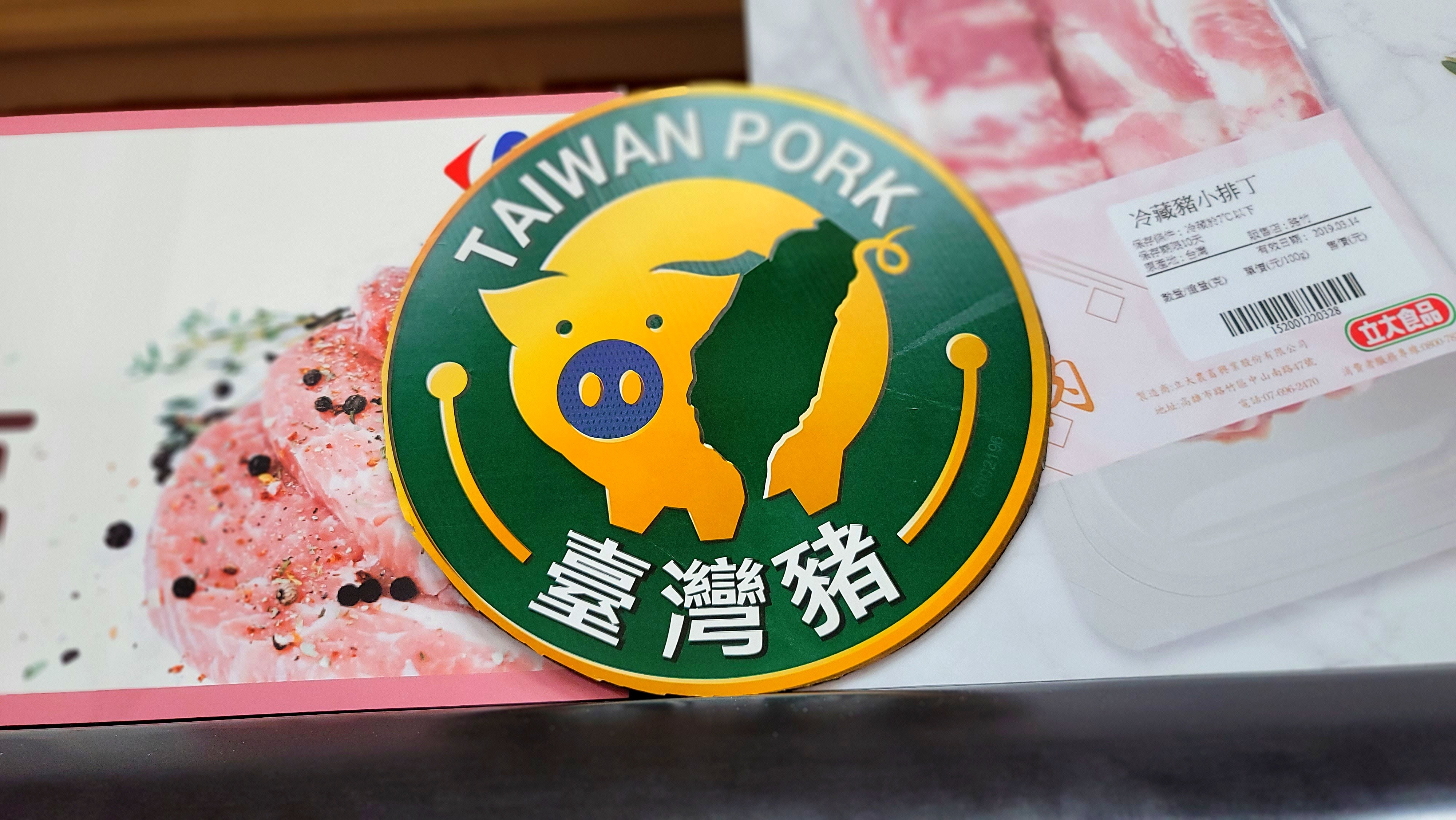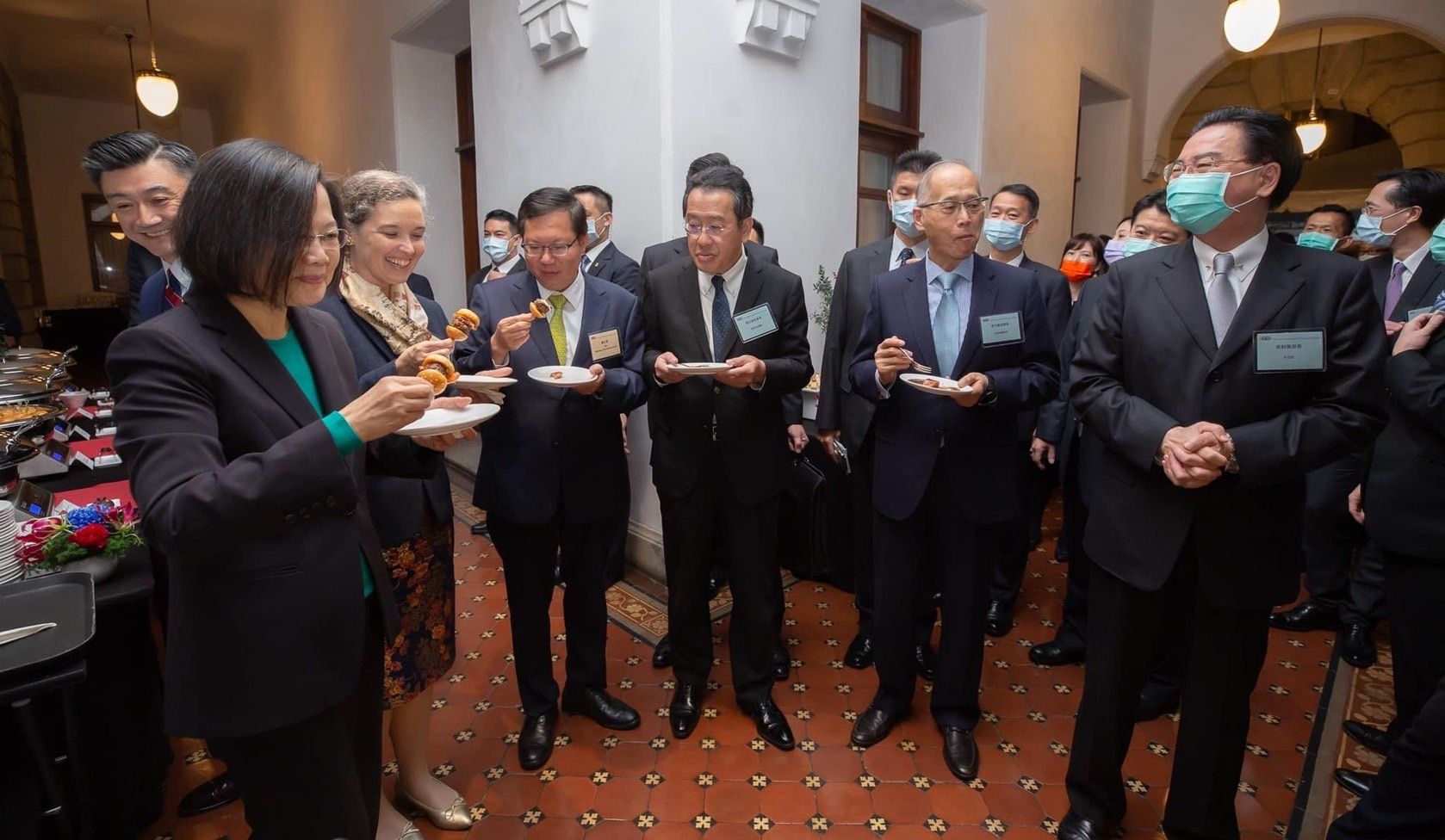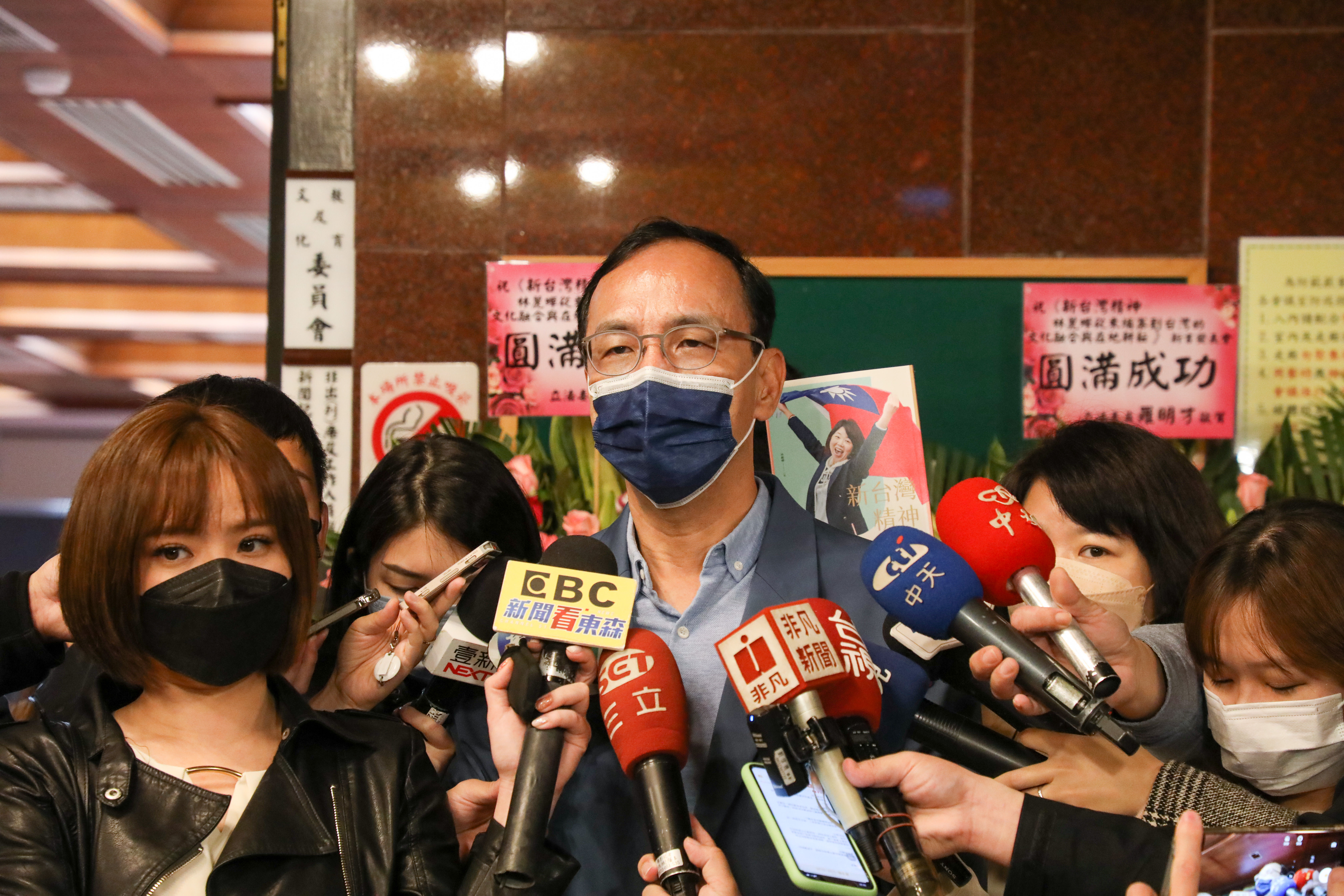● 方恩格/前美國共和黨海外部亞太區主席
英文裡有一個說法叫做「pigs may fly」,通常用在表示某事發生的可能性極低的時候,豬都會飛那樣的困難程度,類似中文的「太陽打西邊出來」。例:你覺得拜登總統有可能造訪台灣?「When pigs fly!」(當豬會飛天的時候,或許有可能)。
當豬會飛時
反含有萊克多巴胺的豬肉進口公投沒有過關,即使目前這些豬肉已經開放進口,但根據官方數據,目前尚未有萊豬進到台灣。那麼這些豬肉有可能會在被消費者吃下肚之前長出翅膀飛天嗎?
台灣的中央政府和民進黨在公投前幾週大力宣稱,通過公投來禁止進口萊豬會造成台灣在國際間的貿易協定談判中的信譽產生負面的影響。
他們宣稱,若公投通過禁止進口萊豬,很可能會造成美國接下來在如臺美貿易暨投資架構協定(TIFA)等貿易協定框架下拒絕與台灣進行貿易談判,也可能造成跨太平洋夥伴全面進步協定(CPTPP)拒絕台灣的入會申請等惡果。
就算美豬順利大量進到台灣,在目前的國際情況之下,美國會與台灣簽署自貿協定嗎?CPTPP成員會同意讓台灣加入嗎?至少在短期內,讓豬飛起來可能還比較容易。

▲即便政府已解決萊豬進口議題,卻不代表台美能在短期內洽簽FTA。(圖/路透社)
雖然現今美國國會普遍支持台美雙邊協議該有所進展,但迄今拜登政府對與他國簽訂新的雙邊貿易協定的興趣似乎不高,尤其是簽訂新的自由貿易協定,更不是他們的優先待做事項。
加上美國的「貿易促進授權(trade promotion authority)」已於今年逾期,之後新的貿易協定將無法再使用先前的「快軌程序」在國會快速通過審議,這將會導致美國政府在簽下新的貿易協定時更加困難。
至於 CPTTP,除非台灣允許進口2011年日本核災的受災地區福島等地的食品進口,否則日本不太可能同意台灣的 CPTPP 入會申請。就算日本寬宏大量不在乎台灣對其的食品進口限制,我們很也很難推測在CPTPP的成員之中,有哪些其他國家會為了讓中國優先加入CPTPP,而推遲台灣的入會許可。
美國萊豬是否很快會在台灣大量鋪貨上架呢?筆者認為即使反進口的公投未通過,基於台灣的消費普遍對於萊豬的憂患意識,各地方政府將會積極規定進口豬肉的標示,這也會導致在餐廳、夜市、小攤、超市或其他銷售進口豬肉的通路可能會對萊豬的銷量有所顧慮。

▲不含萊豬的台灣豬標章。(圖/記者呂佳賢攝)
此外,台美雙方的進出口商也很可能會深受非關稅壁壘之擾,而增加美豬進口來台的困難度。
改善對外形象 國民黨須多加油
例如當進口食品貨櫃抵達台灣的港口後,檢疫與通關的步驟可能會向進口商另外提出相關進口文件要求。或者可能在美國某養豬場因豬隻疾病爆發,台灣政府便對美發出臨時禁令、加上政府對國內自產的肉品援助等諸多因素都會降低在台進口肉品的競爭力。

▲美國商會70週年慶,蔡英文跟AIT處理孫曉雅一起吃美牛漢堡餐。(圖/翻攝網路)
為了慶祝萊豬議題不再是美台友好之間的阻礙以及促進政黨協商,或許美國在台協會臺北辦事處處長孫曉雅女士可以邀請蔡英文總統和國民黨主席朱立倫共進一場美國萊豬盛宴,菜色可以縱橫美式與台式料理,然後共同發表三人共餐的影片。蔡英文總統既然都已經願意以身作則示範打國產疫苗了,相信示範吃美國萊豬對她而言根本小事一樁。
對國民黨而言,公投結果意味著未來他們無須再費唇舌解釋反對進口萊豬的理由。然而,對美國的農業和貿易官員以及國會議員看來,傷害已經造成。
因為民進黨成功塑造了國民黨反美豬的形象,然而這個指控是不確實的,因為國民黨反對的萊豬不只是針對來自美國萊豬,而是所有進口萊豬。如此將國民黨塑造成特別反美豬(即反美),是一個很簡易有效的政治手段。

▲先是被扣上了「反美」帽子、接著稱台灣政府為獨裁政府,或許國民黨該思考是否有更積極正面、符合民主價值的切入點,可以改善自己在美國面前的形象。(圖/國民黨提供)
然而,國民黨主席朱立倫在記者會上表示「公投結果對於台灣新民主獨裁政府是一個勝利,但對於追求深化民主的人而言,是一大傷害」,如此發言會讓外國政府充滿困惑,畢竟台灣選民靠著民主制度下的公投做出了這樣的結果,朱卻劍指此為獨裁結果。
先是被扣上了「反美」帽子、接著稱台灣政府為獨裁政府,或許國民黨該思考是否有更積極正面、符合民主價值的切入點,可以改善自己在美國面前的形象。
【英文版】
Will Taiwan Consumers Eat Ractopamine Pork or “Pigs Might Fly” First?
By Ross Darrell Feingold
Former Asia Chairman, Republicans Abroad
Twitter: @RossFeingold
In English, the phrase “pigs might fly” is used to express doubt that something will occur. The rejection of the proposed ban on the importation of pork that includes the additive ractopamine ensures that this product can be imported into Taiwan, though, pigs might fly before consumers eat it or the controversy over it ends.
During the weeks prior to the referendum vote, the Taiwan central government and the ruling Democratic Progressive Party argued that passing the referendum to ban the importation of pork with ractopamine would have a negative effect on Taiwan’s credibility in negotiating trade agreements. In other words, if a ban on the import of ractopamine pork passed, the result would be that the United States refuses to enter into negotiations with Taiwan for a trade agreement whether under the Trade and Investment Framework Agreement (TIFA) or some other structure, and, member countries of the Comprehensive and Progressive Agreement for Trans-Pacific Partnership (CPTPP) would refuse to enter into negotiations to admit Taiwan into the CPTPP.
In reality, will the United States sign a free trade agreement with Taiwan? Will CPTPP members negotiate with Taiwan for its eventual membership? At least in the short term, pigs are likely to fly first. Although there is significant support in Congress for a bilateral trade agreement with Taiwan, the Biden Administration is reluctant to enter into new bilateral trade agreements, and especially new free trade agreements. The expiration this year of the United States law known as “trade promotion authority” makes it even more difficult for the United States government to enter into new trade agreements, as the agreement will no longer be considered in Congress under the “fast track” procedures that previously existed under trade promotion authority. As for the CPTTP, Japan is unlikely to support Taiwan’s CPTPP application unless Taiwan allows the importation of food from the Fukushima region that includes the location of the nuclear accident in 2011, but even if Japan puts aside that issue, it is unknown whether one or more CPTPP members will insist China be admitted to the CPTPP prior to Taiwan, and thus delay Taiwan’s entry.
Will pork from the United States that includes ractopamine be widely available in Taiwan any time soon? Notwithstanding the referendum result, consumer concerns about ractopamine and local government actions to impose consumer notification requirements, make it unlikely restaurants, night market vendors, supermarkets or other sales channels will sell it. Exporters in the United States, and importers in Taiwan, should also worry about non-tariff trade barriers such as excessive documentation requests by relevant Taiwan government agencies when product arrives at Taiwan’s ports, sudden temporary bans in response to disease outbreaks should one occur at US pork farms, and government assistance to the domestic industry that makes imports less competitive.
Perhaps, in a gesture to show that the United States and Taiwan will move forward from the ractopamine pork issue, and in a spirit of bi-partisanship, American Institute in Taiwan Taipei Office Director Sandra Oudkirk can invite President Tsai Ing-wen and Kuomintang Chairman Eric Chu to a meal in which dishes that include US made ractopamine pork are served. The menu can include both US and Taiwan style cooking, and video can be released that shows the three ate the US ractopamine pork. If President Tsai can share video that she received the Medigen COVID-19 vaccine, surely a few bites of US ractopamine pork is safe for her to do as well. Unfortunately, pigs are likely to fly before such an event occurs.
As for the Kuomintang, the result means that in the future (had the referendum passed) the Kuomintang need not explain why it wanted to ban US ractopamine pork from Taiwan. However, this is not something for the Kuomintang to celebrate, as the damage in the view of United States government agricultural and trade officials, and Members of Congress, is already done. The social media posts and statements by Democratic Progressive Party officials that the Kuomintang opposes United States pork, even if inaccurate (as a ractopamine pork ban would apply to all source countries and not only the United States) was an effective campaign weapon, and the view is that the Kuomintang opposes United States pork. In addition, Kuomintang Chairman Eric Chu’s statement at a press conference that the referendum results are “a victory for a new autocratic government in Taiwan, but is a deep wound for people who wish to deepen democracy in the nation” must be explained to the United States government and Members of Congress, who view President Tsai, the Democratic Progressive Party and the people of Taiwan as on the frontline of the fight to preserve democracy. If the Kuomintang wants to change American perceptions towards the party, it better come up with a post-referendum strategy before pigs fly.
熱門點閱》
● 以上言論不代表本網立場,歡迎投書《雲論》讓優質好文被更多人看見,請寄editor88@ettoday.net,本網保有文字刪修權。

讀者迴響